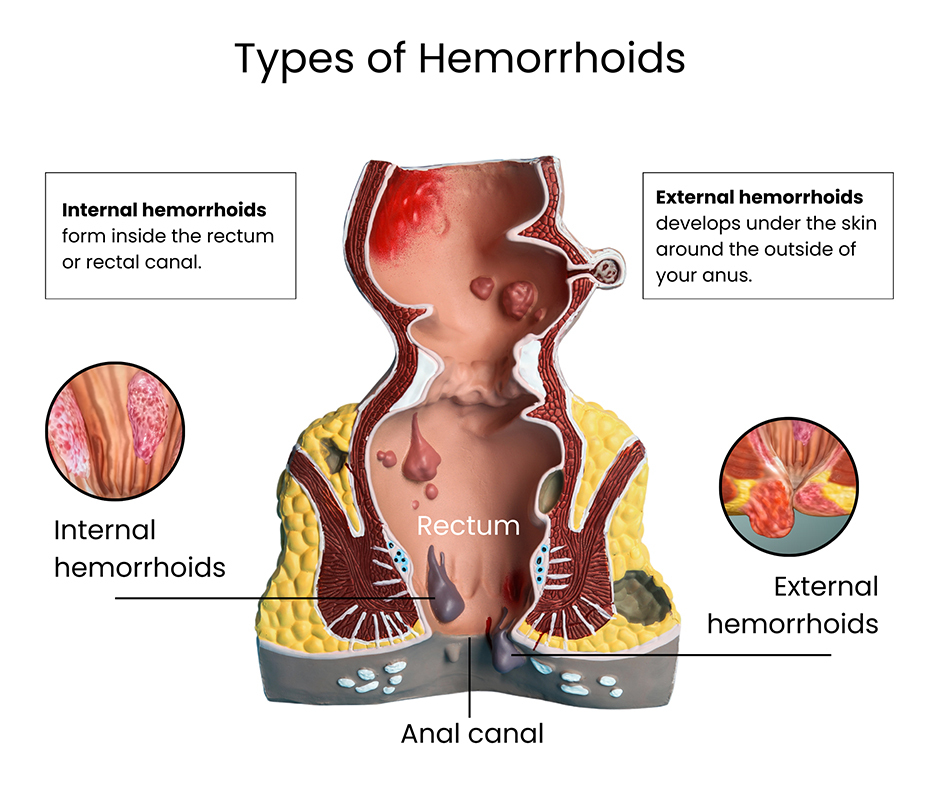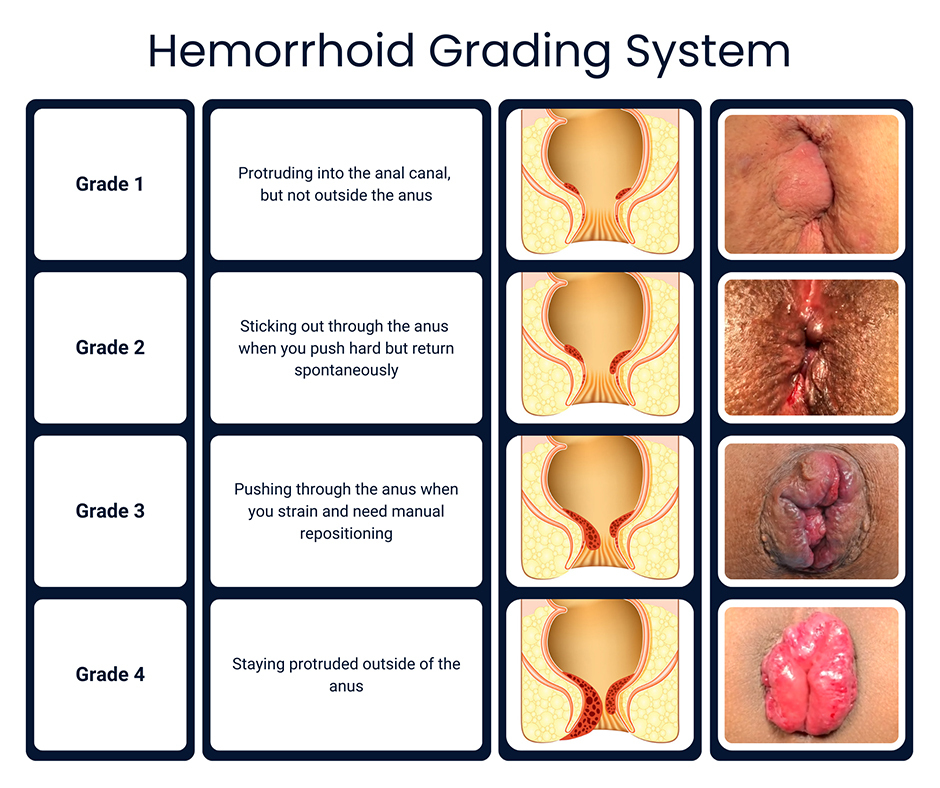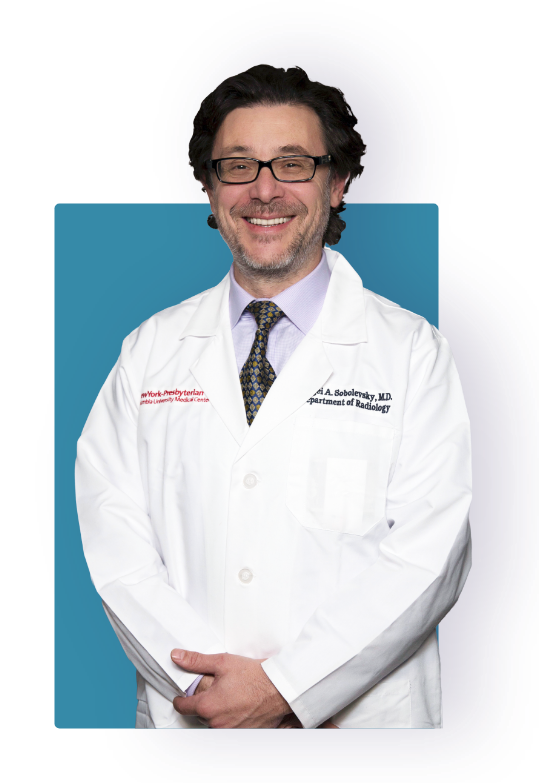If you’re told that you have Grade 1 or Grade 2 hemorrhoids, they may go away on their own, and you can usually get relief with over-the-counter medications. With time, though, early stage hemorrhoids can turn into Grade 3 or Grade 4. Then you may need to undergo a procedure to get rid of the protruding veins in your rectum. At that point, you will have experienced significant pain and suffering. To avoid all that, call Dr. Sergei Sobolevsky at the Downtown Vein & Vascular Center in Brooklyn at the earliest signs of hemorrhoids.
Why Is a Hemorrhoid Grading Important?
Hemorrhoids cause discomfort, pain, bleeding and anemia. They’re also disruptive to your lifestyle. Grading hemorrhoids is important to determine the most appropriate treatment approach so your doctor can create a tailored treatment plan. Without a grading system, you may get the wrong treatment.
Dr. Sergei Sobolevsky of the Downtown Vein & Vascular Center in New York City is a leading hemorrhoids specialist. His expertise includes treating vein and artery conditions like hemorrhoids. With thousands of successful treatments, he has an effective treatment plan for hemorrhoids of every severity.
What Are the Various Kinds of Hemorrhoids?

Internal hemorrhoids develop within the anus or rectum, and they’re usually not visible externally. Less serious internal hemorrhoids appear as bumps inside, while more severe ones can form a long protrusion.
External hemorrhoids occur under the skin around the anus and are visible from the outside. They appear as swelling around the anus, but they also itch. Prolapsed hemorrhoids are internal hemorrhoids that swell and protrude out of the anus, while thrombosed hemorrhoids are external or internal hemorrhoids with blood clots.
Common symptoms that may point to hemorrhoids include:
- Painless bleeding when moving your bowels
- Protrusions inside your anal canal or rectum
- Itching or irritation in your anal region
- Severe pain
- Swelling and inflammation around your anus
- A hard, discolored lump near your anus
How Are Hemorrhoids Graded?
Hemorrhoids are graded based on the extent of prolapse and their severity. Grading ensures personalized care, as patients with different grades of hemorrhoids receive specific treatment recommendations. By addressing hemorrhoids at an appropriate stage, your doctor quickly alleviates your symptoms and discomfort.
The hemorrhoid grading system is objective, determined by a physical examination. Other criteria include how you explain the symptoms and feelings from the hemorrhoids and how long they’ve lasted.
The hemorrhoid grading system involves four stages, all of which may be painful or uncomfortable:
- Grade 1. Protruding into the anal canal, but not outside the anus
- Grade 2. Sticking out through the anus when you push hard but return spontaneously
- Grade 3. Pushing through the anus when you strain and need manual repositioning
- Grade 4. Staying protruded outside of the anus

What Are the Treatment Options for Hemorrhoids?
Hemorrhoids that are Grade 1 and Grade 2 are generally easier to manage, due to their less severe prolapse and minimal symptoms. Taking early action forestalls growth at this stage without much need for intensive medications and procedures.
Some of the treatment options that work for these low-grade hemorrhoids include:
- Dietary modifications. Increase fiber intake to soften your stools, prevent straining and avoid gas-related discomfort
- Topical treatments. Over-the-counter hemorrhoid creams or suppositories containing hydrocortisone, pads with witch hazel or numbing medicine for pain relief
- Rubber band ligation. Your doctor places a small rubber band around the base of the hemorrhoid to restrict its blood flow, making the hemorrhoid shrivel and fall off.
Hemorrhoids that have progressed to Grade 3 and Grade 4 pose greater challenges, as they’re more severe. Additionally, a prolapse requires manual repositioning. These stages often require surgery to cut off the hemorrhoids, especially when they’re large and clotted.
Surgical options are usually recommended when:
- There are recurrent symptoms despite conservative or office-based treatments.
- You have a severe external disease, and other options aren’t feasible.
- You have an inability to tolerate office procedures due to comorbidities or anticoagulation medication.
Advanced medical options for hemorrhoid treatment include:
- Embolization. A safe and most effective means of hemorrhoid treatment, embolization is a minimally invasive, in-office procedure. Dr. Sobolevsky performs this specialty while you’re under twilight sedation. Embolization prevents trauma and incontinence while reducing the risk of hemorrhoids recurring. It improves your symptoms almost immediately.
- Banding. This treatment is effective for Grade 3 hemorrhoids. It involves placing a tight band around the base of the hemorrhoid to cut off blood supply.
- Sclerotherapy. A chemical injection shrinks the hemorrhoid and stops its bleeding.
- Excisional hemorrhoidectomy. This option is reserved to treat severe symptoms. It involves surgically cutting off the hemorrhoids. It works for both internal and external hemorrhoids.
If you’re suffering from hemorrhoids of any stage, contact Dr. Sobolevsky at the Downtown Vein & Vascular Center. The earlier you start treatment, the sooner you can enjoy pain-free and symptom-free days.

I am Dr. Sergei Sobolevsky, a leading specialist in endovascular medicine. Having performed over 25,000 procedures throughout my career, I bring decades of experience in vascular and interventional radiology to my practice. I obtained my Doctor of Medicine (MD) degree from the University of Colorado School of Medicine in 1997 and completed my specialty clinical training in vascular and interventional radiology at Harvard University.
My dedication to excellence in patient care has been recognized through accolades such as being named a Castle Connolly Top Doctor and inclusion in the Top Doctors New York Metro Area lists for 2020, 2021, 2022, and 2023. With licenses in multiple states, I have also shared my expertise through presentations at various institutions in the US and abroad.
More About Dr. SobolevskyDowntown Vein Treatment Center
480 Court Street, Ste 101
Brooklyn, NY 11231
(718) 787-5559


